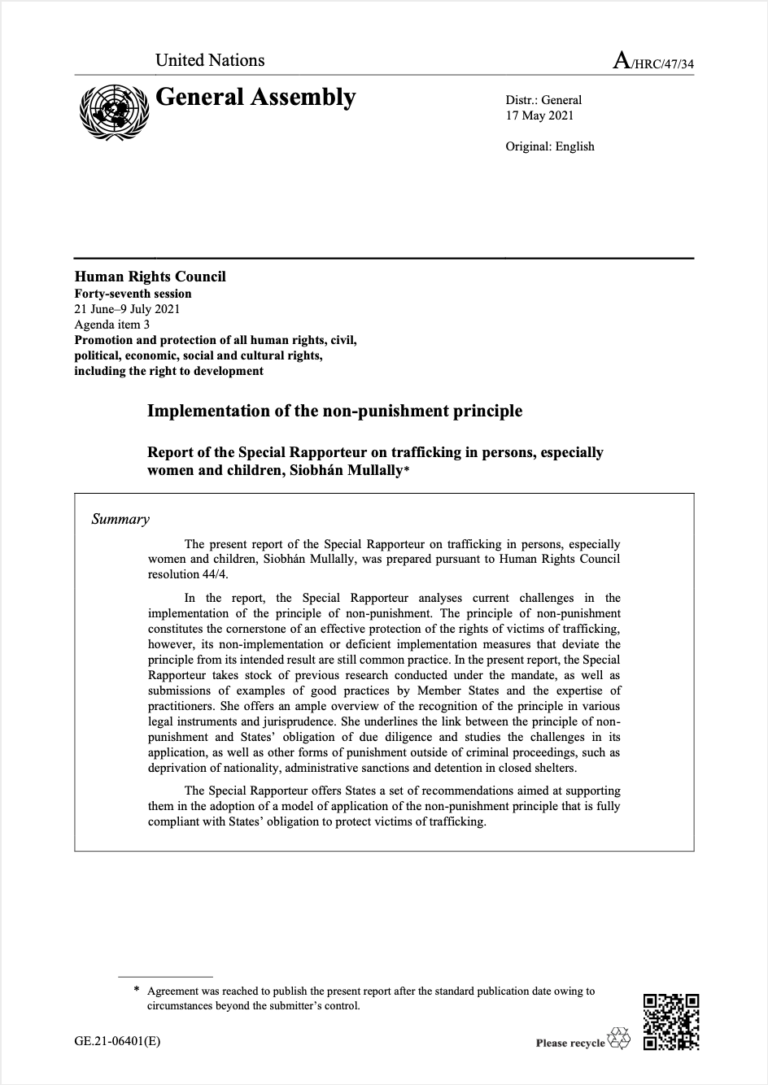In the report, the Special Rapporteur analyses current challenges in the implementation of the principle of non-punishment. The principle of non-punishment constitutes the cornerstone of an effective protection of the rights of victims of trafficking, however, its non-implementation or deficient implementation measures that deviate the principle from its intended result are still common practice. In the present report, the Special Rapporteur takes stock of previous research conducted under the mandate, as well as submissions of examples of good practices by Member States and the expertise of practitioners. She offers an ample overview of the recognition of the principle in various legal instruments and jurisprudence. She underlines the link between the principle of non-punishment and States’ obligation of due diligence and studies the challenges in its application, as well as other forms of punishment outside of criminal proceedings, such as deprivation of nationality, administrative sanctions, and detention in closed shelters.

